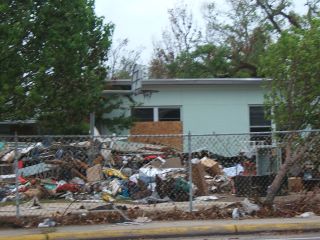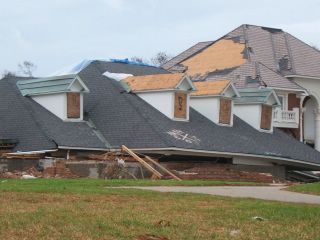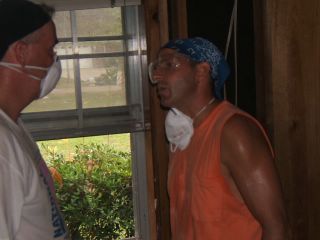It was an interesting film to watch with a group from a church whose future has been in doubt for many years, and continues to be an open question as we stumble along from one crisis to the next.
It leaves me wondering, is there a future for the progressive church?
We all know that the so-called Christian Right is an extremely powerful cultural and political force in the nation. The Christian Right dominates the cultural perspective on Christianity so much that most folks outside of the walls of progressive churches do not even know that such a thing as progressive Christianity exists.
Years ago, when I worked for a short while on the Nuclear Freeze campaign, I recall the shock that a friend expressed when he learned that I was going to the Divinity School at the University of Chicago. "What’s a good progressive like you doing in a divinity school?” he wanted to know. I tried to explain that there was a tradition of progressive Christianity, but he had never encountered it. Most folks haven’t.
For most Americans, Christianity has become synonymous with a particular legalistic, conservative, evangelical movement whose vocal, media-savvy leaders are quick to condemn anyone who sees the world differently than they do.
Gays and other sexual minorities? An abomination. Women? Remain silent and “gracefully submissive,” in the words of the Southern Baptist Convention. Jews? In need of salvation. Feminists, lesbians, the ACLU, People for the American Way? Responsible for September 11, according to Pat Robertson and Jerry Falwell.
At a meeting of conservative Presbyterians a while back, one speaker said that liberals were like bugs devouring the foundation of the church. He called for stomping as the appropriate response to such an infestation. I’m not sure, but I believe they broke into a spontaneous version of “Guide My Feet” at that point!
In the face of such attacks from some conservatives and such widespread ignorance from the population as a whole, we have to ask: is there a future for progressive Christianity?
As for me, I firmly believe and have dedicated my own life to the conviction that God is calling forth a progressive, inclusive, engaged, diverse church upon which to build the beloved community. Now this future remains to be worked out in our living together as church.
Yes, there is a future. But whether it is a future of exile, decline, death and memorial stones or a future of foundation stones and building together and vibrant worship and call and response … remains to be worked out in our living together as church.
Indeed, the foundation was laid for a progressive, inclusive and diverse church by Jesus himself, as one can see in passages such as Mark 7:24-37, where Jesus encounters the Syrophoenician woman.
What might the future look like, if we live into our calling? A progressive Christianity will not be afraid. It will welcome contact and dialogue and deep conversation with other cultures and traditions including with our conservative, evangelical brothers and sisters, and it will be open to being transformed itself in and through such relationships, just as Jesus was transformed in his meeting with the Syrophoenician woman.
Now most commentators don’t want to read it this way, but the plain and clear story line here shows us that Jesus is changed by his encounter.
Jesus went to a Gentile region to get away. A Jewish healer and prophetic teacher ought to be able to rest in quiet anonymity for a while in the region of Tyre. Yet a gentile woman comes and pleads for healing and wholeness for her daughter.
Jesus tries to brush her aside – after all, he is Jewish and is focused on the spiritual condition of his own people. Yet her faithful pleading opens him up to the possibility that his mission is broader than he had previously understood.
In this moment, Jesus comes to more fully understand that, as William Sloan Coffin put it, “There is no way that [faith] can be spiritually redemptive without being socially responsible. A [faithful person] cannot have a personal conversion experience without experiencing at the same time a change in social attitude. God is always trying to make humanity more human.”
In this encounter with a marginalized woman, Jesus becomes more human, he becomes more clearly a child of a loving, merciful, just creator.
As Bonhoeffer put it, “Jesus tells us: You are standing under God’s love; God is holy and you, too, are to be holy.”
And in this story from Mark, Jesus radically expands the reach of that good news. For the good news is not just to one sect, defined by a set of legalistic boundaries designed to keep folks out. No. The good news is for everyone, for we are all heirs to the promise of wholeness and healing that is proclaimed through Jesus.
There is no East or West, male or female, slave or free, Gentile or Jew, black or white, straight or gay – for we are all children of the same God.
Jesus goes way out of his way to demonstrate this when he travels to the Decapolis on his way back to Galilee. Going by way of the Decapolis is like traveling from DC to New York by way of Cleveland – only more so, for the Decapolis was an unclean region avoided by Jews. Perhaps more like Pittsburgh!
His route and his actions – healing a Gentile from an unclean region – proclaim good news for all people. Jesus shows us here that grace is abundant; that the power of healing and wholeness is everywhere for everyone.
The people were astounded beyond measure, scripture tells us. Why? Was it the miracle healing? No doubt that was part of it, but healers were not uncommon. The larger miracle was this: for a people used to hearing that they were unclean, excluded, beyond salvation, Jesus proclaims this good news: God’s radically inclusive love for all people brings healing and wholeness to all of our wounded and broken lives; God’s radically inclusive love brings peace into our warring lives; God’s radically inclusive love for all creation brings light into the present darkness.
This is the foundational truth upon which we will build the future for progressive Christian faith and life. This is the bright light that will illuminate the way for that progressive life and faith to journey toward the future of God’s calling. And this promised future marks the most profound difference between progressive Christian faith and life and its other.
For, as William Sloan Coffin suggests, the theology of the Christian Right offers a present that has only a past. To that I say God calls forth a bright new morning -- in this place; at this moment.
God is calling us to risk the new day, to step into a bright new morning – a new morning of restored relationships following a long night of barriers and barbed wired; a new morning of reparation in our streets following a long night of injustice; a new morning of peace following a long nightmare of warfare; a new morning of light and more light following a long dark midnight. Arise, our light is come!
Hey, maybe the progressive church is just a beat up old undersized race horse that just happens to be the wave of the future. It could happen.






